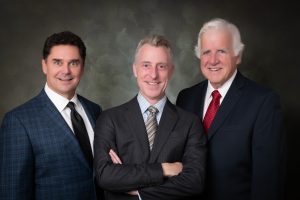Search
Barone Defense Firm Named Among Regions Best Law Firms Again for 2021
US News and World Report has once again included the Barone Defense Firm as among the region’s Best Law Firms for DUI/DWI Defense. The Firm has been so listed since 2010.
US News and World Report ranks lawyers based on a variety of criteria. While the award is granted by the publication, it is essentially based on peer review. For a law firm to be ranked by US News and World Report a lawyer in the subject firm must first be among those lawyers who have previously received a “Best Lawyers” award by US News and World Report. These lawyers have passed peer review, meaning that other lawyers in the region, or nationally if applicable, have indicated that the lawyer possesses sufficient subject matter expertise, is known to possess and execute a high level of responsiveness to the rigors and demands of the profession, including things such as decorum with the courts, timely filing of pleadings and papers, responding to clients and opposing counsel, and many other professional demands. Peers are also asked whether they would refer a matter to a firm and whether they consider a firm a worthy competitor. On this basis, the Barone Defense Firm has a tier one regional ranking for the area of DUI/DWI.
For more than 20 years the Barone Defense Firm has developed its pristine reputation for DUI/DWI defense and distinguished itself among its peers for excellence in this challenging area of criminal law. However, for the later portion of the past 20-year period the Barone Defense Firm has expanded its practice to include other areas of criminal defense at both the State and Federal level and has developed expertise in such disparate areas as firearms law, criminal sexual conduct including the possession manufacture and distribution of child pornography (at the Federal level) and CSAM (child sexually abuse material) and other CSC cases at the state level, and many areas of white collar criminal including health care fraud, prescription fraud, complex financial crimes and RICO.
 Michigan Criminal Defense Lawyer Blog
Michigan Criminal Defense Lawyer Blog


